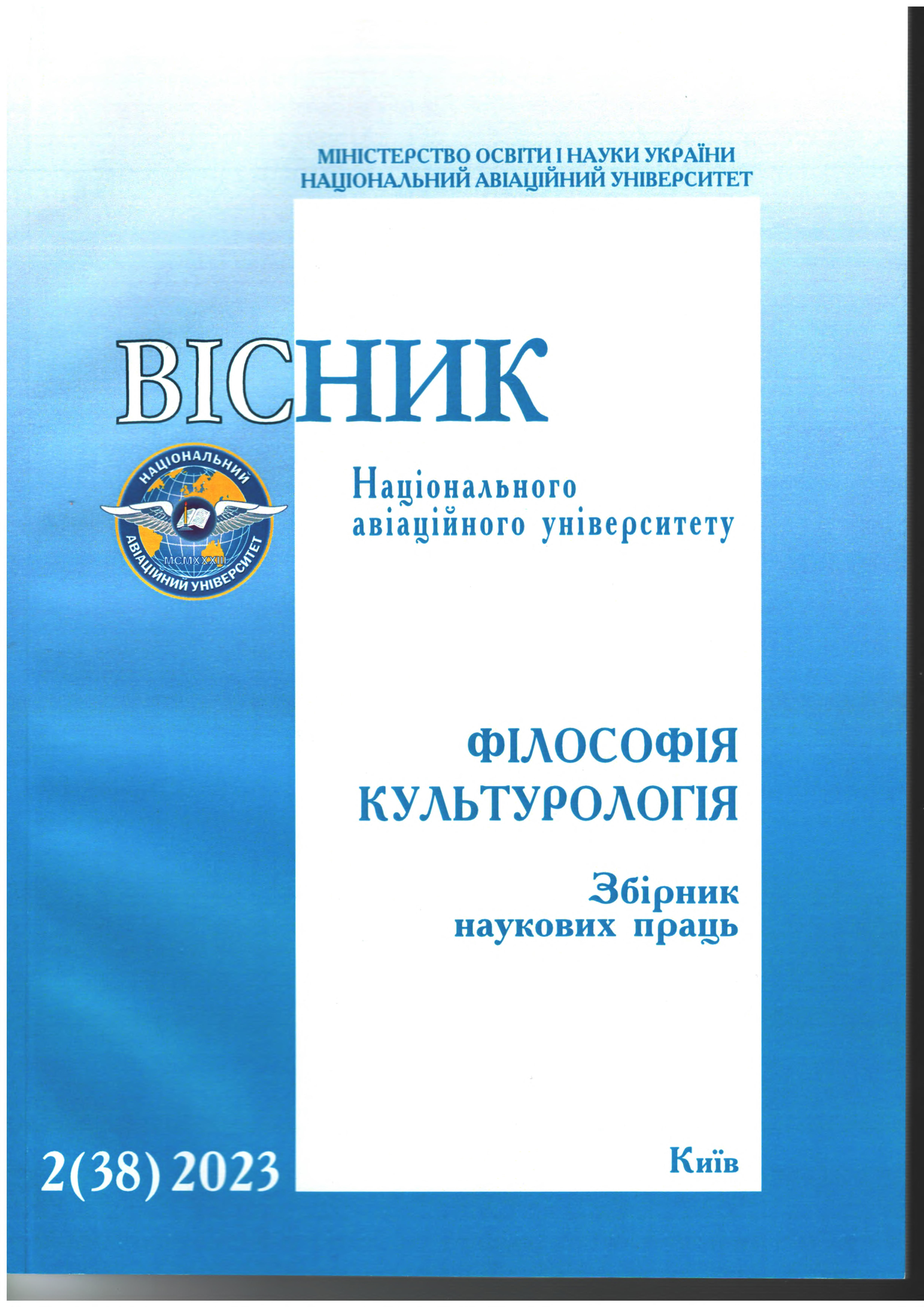LANGUAGE OF SCIENTIFIC COMMUNICATIONS IN THE INFORMATION SOCIETY: SOCIAL AND PHILOSOPHICAL ASPECT
DOI:
https://doi.org/10.18372/2412-2157.2.18110Keywords:
information society, knowledge society, scientific communications, scientific language, information and communication systems, virtual space, scientific cognitionAbstract
Introduction. At the beginning of the third millennium, information and communication technologies are transforming the language of scientific communications. The aim and tasks. With the emergence of new forms of scientific communication, it is important to study how information and communication systems impact the modern language of scientific communication. This includes identifying both positive and negative consequences that may arise from their use. Research methods are general and special scientific methods and approaches to investigate the peculiarities of the language of scientific communication systems in the information society. Research results. The process of scientific knowledge is to some extent determined by new forms of scientific communication. However, one should not ignore the changes that took place in the language of communications during their cultural and historical development and changes in the organization and functioning of research institutions. Communication in science is a complex whole system, the various components of which (formal, informal, etc.) are so closely related to each other that any attempt to study one or several of them, without taking into account the rest, is not a priori adequate. The level of linguistic culture of scientists and specialists in relevant fields has a significant impact on the formation of scientific texts and the effectiveness of the communication process. Discussion. The importance of scientific communication as an integral element of the process of scientific knowledge began to be realized relatively recently. The study of existing communication mechanisms of cognitive and educational processes, methods, and means of information and communication systems is impossible without taking into account the social and cultural-historical context of the communication process and the language of communication. In today's society, those who are proficient in navigating the virtual world and communicating through social networks have the potential for effective information exchange. However, this proficiency also exposes them to conflicts that may arise due to a lack of proper linguistic culture. Conclusions. Scientists working in different geographically distant scientific institutions had the opportunity to exchange intermediate research results and work together to solve the problem. However, the active use of the Internet by scientists in their professional activities has a negative impact on changing the language of scientific communications. This includes the decline of speech culture, the harmful effect on the human psyche, copyright infringement, etc.
References
Bowles, N. 2019. Human Contact is Now a Luxury Good. New York Times. Режим доступу: https://www.nytimes.com/2019/03/23/
sunday-review/human-contact-luxury-screens.html
Castells, M. 2002. The Internet Galaxy: Reflections on the Internet, Business, and Society. Oxford University Press. URL:
https://doi.org/10.1093/acprof:oso/9780199255771.001.0001. (дата звернення: 01.11.2023).
McLuhan M. 2001. The Gutenberg Galaxy: The Making of Typographic Man. Canadian National Institute for the Blind.
Pоdа Т. International relations development in cyberspace. Вісник Національного авіаційного університету. Серія:
Філософія. Культурологія. Збірник наукових праць. Вип. 1.(33). 2021. С. 131-135. DOI: https://doi.org/10.18372/2412-2157.33. 15658
Дротянко Л. Г. Цифровий вимір сучасного етапу цивілізованого розвитку соціуму. Вісник Національного авіаційного
університету. Вип. 1 (33). 2021. С. 16-21. (Серія: «Філософія.Культурологія»).
Єльнікова Н. І. Мовний аспект комунікації в українських версіях соціальних мереж. «Сучасні проблеми правового, економічного та соціального розвитку держави». Тези доповідей Х Міжнародної науково-практичної конференції, присвяченої 27-й річниці створення Харківського національного університету внутрішніх справ. Харків: 2017. С. 43-46.
Онопрієнко В. І. Науковедення: пошук системних ідей. К.: 2008. 288 с.
Онопрієнко В. І. Наукове співтовариство: Вступ до соціології науки. К.: ЦДПІН НАН України, 1998. 98 с.
Електронні бібліотеки: інформаційні ресурси та сервіси В. А. Резніченко, О. В. Захарова, Е. Г. Захарова. Проблеми
програмування. 2005. № 4. С. 60-72. URL: http://dspace.nbuv.gov.uа /handle/123456789/1374
Сухова Н. М. Цифрова реальність: нові умови для людства. Вісник Національного авіаційного університету. Вип. 1 (33). 2021. С. 150-154. (Серія: «Філософія. Культурологія»).
Скиба І. П. Специфіка науки в контексті її морального виміру (цивілізаційний аспект). Вісник Національного авіаційного університету. Вип. 2 (36). 2022. С. 120-125. (Серія: «Філософія. Культурологія»).
Скиба О. П. Інформаційно-комунікаційні технології в науці і освіті сучасного суспільства. Вісник Національного авіаційного
університету. Вип. 2 (22). 2015. С. 61-63. (Серія: «Філософія. Культурологія»).
Фіялка С. Б. Модель фахової комунікації за посередництвом наукового журналу. Обрії друкарства. № 1 (9) . 2021. DOI:
20535/2522-1078.2021.1(9).240613
Ченбай Н. А. Інформаційно-комунікаційні технології сучасного суспільства. Вісник Національного авіаційного університету. Вип. 1 (31). 2020. С. 109-113. (Серія: «Філософія. Культурологія»). DOI: https://doi.org/10.18372/2412-2157.31. 14837
Ярошенко Т. О. Наукові комунікації XXI століття: електронні ресурси для науки та освіти України. Бібліотечний вісник. 2006. № 5. С. 17-22. https://ekmair.ukma.edu.ua/ handle/123456789/100


